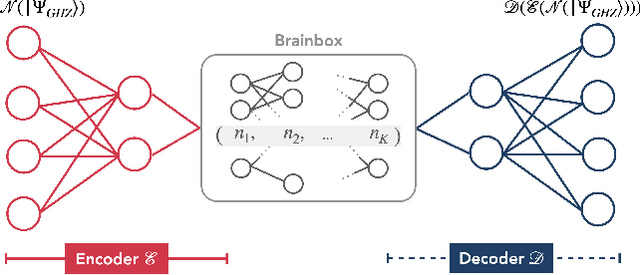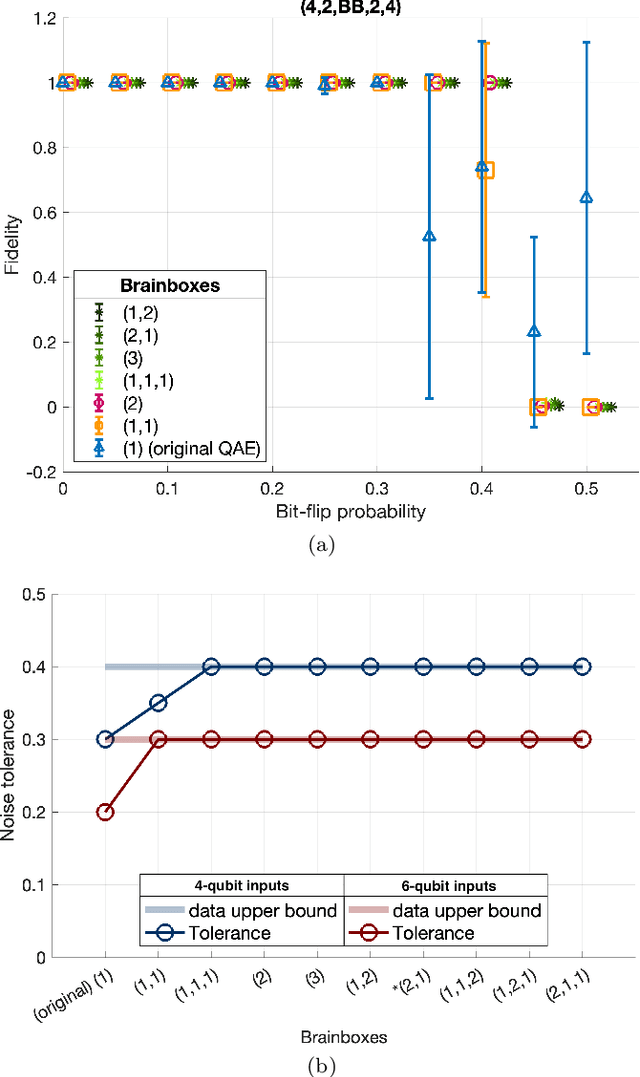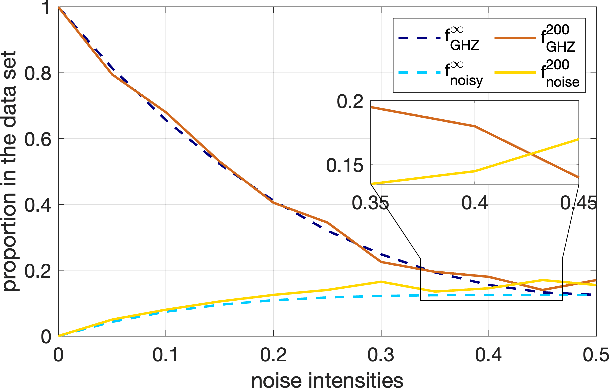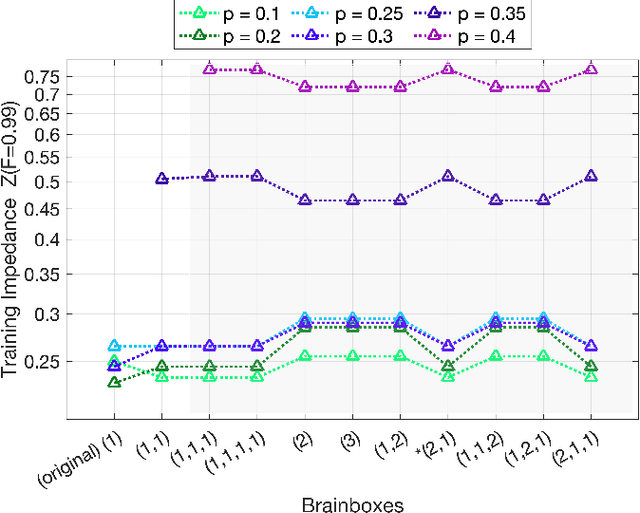Error mitigation of entangled states using brainbox quantum autoencoders
Paper and Code
Mar 02, 2023



Current quantum hardware is subject to various sources of noise that limits the access to multi-qubit entangled states. Quantum autoencoder circuits with a single qubit bottleneck have shown capability to correct error in noisy entangled state. By introducing slightly more complex structures in the bottleneck, the so-called brainboxes, the denoising process can take place faster and for stronger noise channels. Choosing the most suitable brainbox for the bottleneck is the result of a trade-off between noise intensity on the hardware, and the training impedance. Finally, by studying R\'enyi entropy flow throughout the networks we demonstrate that the localization of entanglement plays a central role in denoising through learning.
* 13 pages, 10 figures
 Add to Chrome
Add to Chrome Add to Firefox
Add to Firefox Add to Edge
Add to Edge